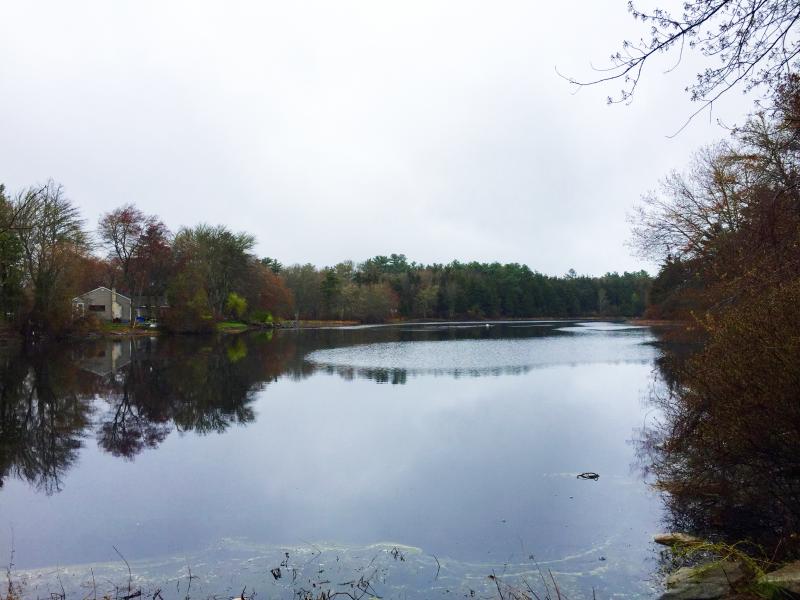Residents, town officials determined to save Lake Noquochoke
Dartmouth town leaders have made it clear: Lake Noquochoke will not be turned into a swamp on their watch.
Before dozens of residents who live on and near Lake Noquochoke, the Dartmouth Select Board addressed the festering controversy over the lake’s future. It has been put into question after the City of Fall River, which owns the water rights and a dam on which Lake Noquochoke depends, revealed the dam needs rehabilitation.
Because the city has no use for the dam and waterway anymore - it once powered mills which are long gone - officials from the City of Fall River Watuppa Water Board discussed the idea of breaching the dam, unless Dartmouth offers to chip in to rehabilitate the dam.
“It’s this board’s determination to make sure that the lake stays,” said Select Board member Shawn McDonald, to applause from the standing room only crowd. “We don’t know the ramifications of turning it into a stream - and we all know it will become a stream.”
McDonald, who himself lives on the lake, said he’d support the Town of Dartmouth sharing the cost of working on the dam.
However, he said another point of contention should be entirely up to Fall River: A gateway which can raise the dam. It was last used during the legendary Kerr Mill Fire in 1987, and McDonald said he doubts it is still operable.
“I don’t have a problem with money going towards the dam,” McDonald said. “The gateway though? Fall River put it there, and Fall River can take it away.”
Board Chair Stanley Mickelson said the back-and-forth with Lake Noquochoke had been going on for a while, and this latest development represents “Fall River throwing stones at us.”
“We as a board have discussed this for awhile now - We don’t want to see it drained up either,” Mickelson said.
Mickelson said a meeting will be set up between representatives from the City of Fall River and various Town of Dartmouth departments to sort out details and figure out what to do next.
“We’re going to go over what [The City of Fall River] is actually trying to accomplish, other than put us in a bad position,” Mickelson said. “I’m not too happy about this. I don’t like being boxed in.”
The City of Fall River commissioned an engineering study to evaluate various project proposals, and their projected costs. The document, which was publicly released on the Town of Dartmouth’s website, outlines several proposals: Repair, rehabilitate, or remove the Noquochoke Lake Dam.
Costs are estimated at $1 million to remove the dam, $1.7 million to rehabilitate the dam, and $1.9 million to repair the dam. These estimates include a 30 percent contingency, which represents uncertainties in the estimation and design process. Proposals to rehabilitate or repair the dam would also include the construction of a fish passage for an additional estimated cost of $475,000.
While town officials address the problem, residents who call the lake home are mobilizing as well. Nick Pleiss has lived on the lake for two years, and enjoyed the lake for 10 years before that. It’s where he proposed to his fiancee.
“When I saw what was going on, I wanted to get the word about the whole situation out,” Peliss said.
He runs the Save Lake Noquochoke Facebook group, and sent letters to all of his neighbors to reach those who aren't online. He said people are working around the clock to protect the lake, from searching for endangered species, to tracking grants and potential funding sources.
“If it turns into a swamp, we’re not going to be able to use our backyards,” Pleiss said. “We might need to redrill our wells. Not to mention people enjoy the lake every year, kayaking and canoeing.”
David Dipaolo and his wife have lived across the street from the lake on Reed Road for years, but recently purchased a lakefront property across the street.
“We just purchased a property on a lake, assured we’d be living on a lake,” he said.
He oversees an email group, savelakenoq@gmail.com, to keep residents informed. He’s also concerned about the possibility of endangered species who might call the lake home.
That is a key area that needs to be looked at, McDonald noted.













